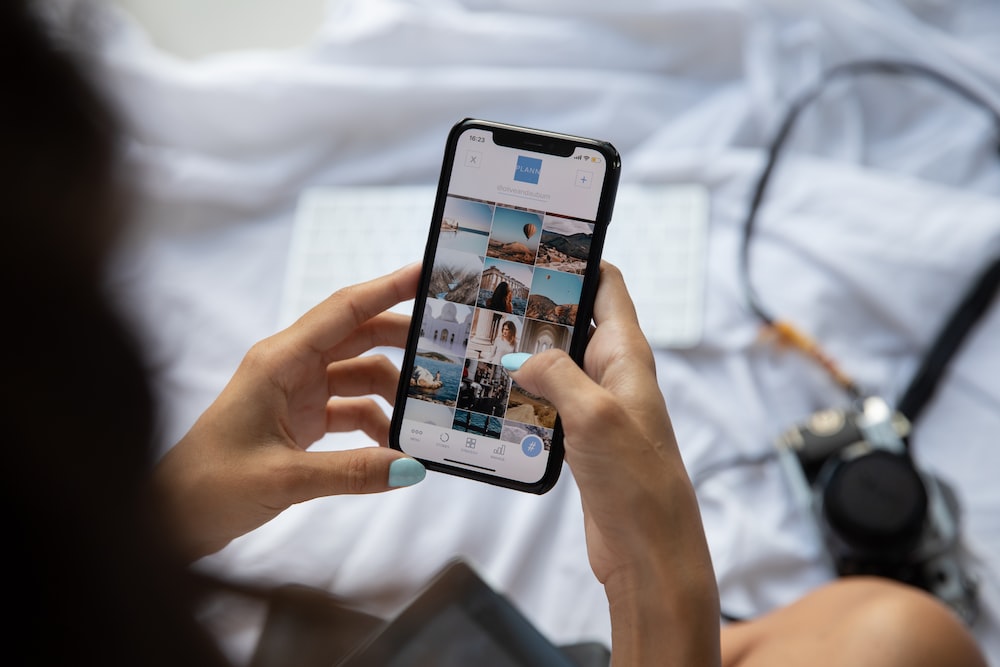You May Be Suffering from Phone-disease “Nomophobia”: Check out these 10 Signs —- Written by Njide Mkparu (Mrs). Read also: SUN-TECH Prosthetics & Orthotics – Best Place in Nigeria for Prosthetics & Orthotics Services. 10 Signs of Smartphone Addiction “Nomophobia”.
In today’s digital age, technology has become an integral part of our daily lives. It’s hard to imagine a world without smartphones, tablets, and other devices that have made communication and access to information easier than ever before. However, there is a dark side to our dependence on technology, and that is the problem of phone addiction.
A phone addict is someone who is excessively dependent on their phone, to the point where it interferes with their daily life. They may spend hours on their phone each day, checking social media, browsing the internet, or playing games. They may feel anxious or irritable when they are away from their phone, and they may neglect other important aspects of their life, such as relationships, work, or hobbies.
Someone who is addicted to their phone can be called a “phone addict” or “smartphone addict”. They may also be referred to as having “nomophobia”, which stands for “no-mobile-phone phobia” and is a term used to describe anxiety or discomfort caused by not having access to one’s mobile phone. Additionally, they could be referred to as being “digitally dependent” or “technologically obsessed”. Next to phone addiction is phonemaniac.
10 Signs of Smartphone Addiction “Nomophobia”
“Phonemaniac” is not a commonly used term in the English language, and it is not found in standard dictionaries. It is just a made-up word that combines “phone” and “maniac”.
However, based on the meanings of these two words, “phonemaniac” could be interpreted as someone who is obsessively or excessively enthusiastic about their phone. It could refer to someone who constantly uses their phone or is addicted to it, or someone who is always seeking the latest and most advanced phone technology. The terms Phonemaniac, “phone addict” or “smartphone enthusiast” all describe someone who is in relationship with their phone.
Many phone users are suffering from what I called phone-disease known as “Nomophobia”. It is really serious and can distract its victim completely from his or her normal life if care is not taken. Are you surprised when you see a Christian mother pressing her phone while in the church, and sermon is going on? While important meeting is going, you will see people struggling with their phones. When you check, you may find out he or she is just moving from one app to another, one social media updates to the other. He or she will keep doing it over and over again.
One major problem I have with phone addicts is that they will never accept when corrected. The person may get angered because he or she is told that phone addiction is setting in. Husbands and wives have quarrelled over phone addiction, parents and children are falling out over phone addiction, and so on.
You cannot stay without your phone. When your phone’s battery strength runs down, you can trek or travel long distances to get it charged. When you run out of data, you become uncomfortable as if something is stolen from you.
10 Signs of Smartphone Addiction “Nomophobia”
Phone addiction is a growing concern in today’s society, and it can be difficult to identify when someone is struggling with this issue. However, there are several signs that may indicate someone is a phone addict. Here are 10 common signs to look out for:
- Excessive phone use:
Phone addicts often spend a significant amount of time on their phones, to the point where it interferes with their daily life. They may spend hours scrolling through social media, playing games, or browsing the internet.
- Constant checking:
Phone addicts may feel the need to constantly check their phone, even when there are no notifications or messages. They may check their phone several times per minute, or feel anxious or agitated when they are away from their phone.
For example, a phone addict may spend several hours scrolling through social media feeds or playing mobile games, even when they have important work or school assignments due. They may constantly check their phone during conversations with friends or family, or become anxious or agitated when their phone is out of reach. They may also experience physical symptoms, such as eye strain or headaches, from staring at their phone screen for extended periods of time.

- Difficulty focusing:
Phone addiction can make it difficult to focus on other tasks or activities. Phone addicts may struggle to pay attention in class, at work, or during conversations with others.
It will make you hold your phone while cooking, while studying the scripture or while attending to files in your office. You will even see yourself going the toilet with yourself, staying in the convenient more than you should because you are with your phone.
- Disrupted sleep:
Using phones before bedtime can disrupt sleep patterns, which can contribute to phone addiction. Phone addicts may struggle to fall asleep or wake up frequently during the night to check their phone.
- Neglected responsibilities and Isolation:
Phone addicts may neglect important responsibilities, such as work, school, or household chores, in order to use their phone. Phone addiction can lead to social isolation, as addicts may prioritize their phone use over spending time with friends and family.
- Physical symptoms:
Phone addiction can cause physical symptoms, such as eye strain, headaches, neck or back pain, and poor posture. Even too much holding of your phone may cause heart palpitation or dizziness.
- You End and Begin with Phone:
You have “nomophobia” if you have formed the habit of sleeping and waking up with your phone. That is, you pressed your phone until you fell asleep and when you wake up the first thing that comes to your head is your phone. It is a big problem.
It is no longer ‘good night and good morning Jesus’. For the phone addicts, it is ‘goodnight with phone and good morning smartphone’.
- Hiding phone use:
Phone addicts may feel ashamed or guilty about their phone use, and may try to hide it from others. You are told that you are using your phone excessively. In order to avoid being noticed, you start using your phone where people who know you will not see you.
- Financial problems:
Phone addiction can lead to financial problems, as addicts may spend excessive amounts of money on phone-related expenses, such as data plans, apps, or new devices. Phone disease will make you to borrow data or airtime always just to keep pressing your phone.
- Withdrawal symptoms:
Phone addiction can cause withdrawal symptoms, such as irritability, anxiety, or depression, when the phone is not available or when use is restricted.
In addition, a phone addict may neglect other important responsibilities, such as household chores or personal hygiene, in order to use their phone. They may feel ashamed or guilty about their phone use, and may try to hide it from others. They may also experience withdrawal symptoms, such as irritability or anxiety, when their phone use is restricted or when the phone is not available.
Overall, phone addiction can have a significant impact on a person’s daily life and well-being. If you or someone you know is struggling with phone addiction, it’s important to seek help from a healthcare professional or addiction specialist. With the right support and treatment, phone addiction can be overcome.
10 Signs of Smartphone Addiction “Nomophobia”
What is the Solution?
First, you must tell yourself the truth and admit that you are suffering from phone addiction and you need help. Read again the 10 symptoms listed above and see most visible ones in your life.
Secondly, you are the owner of your phone. You should control it. You should tell it when and how it should be used and not the other way round. Decide when to take a break from your phone.
As Christians, we are called to live a life that is centered on God and focused on serving others. We are called to be responsible stewards of the time, talents, and resources that God has given us, and to use them to further His kingdom. However, phone addiction can be a major obstacle to living out these values.
If you are struggling with phone addiction, it’s important to take a step back and evaluate your priorities. Ask yourself:
- How much time am I spending on my phone each day?
- The money I am spending on data and airtime, is it necessary?
- What am I using the data to watch or do with my phone?
- How is this affecting my relationships, my work, and my spiritual life?
- Am I using my phone in a way that honors God and serves others, or am I simply seeking entertainment and distraction?
Once you have identified the problem, the next step is to take action. This may involve setting limits on your phone use, such as turning off notifications during certain times of the day or keeping your phone out of reach during meals or social gatherings. It may also involve finding healthier ways to cope with stress or boredom, such as exercising, reading, or spending time in prayer.
Remember, as Christians, we are not called to live a life of self-indulgence or instant gratification. We are called to live a life of sacrifice, service, and love. If you are struggling with phone addiction, don’t be afraid to reach out for help from friends, family, or a professional counselor. With God’s help, you can overcome this obstacle and live a life that is centered on Him. Shalom



